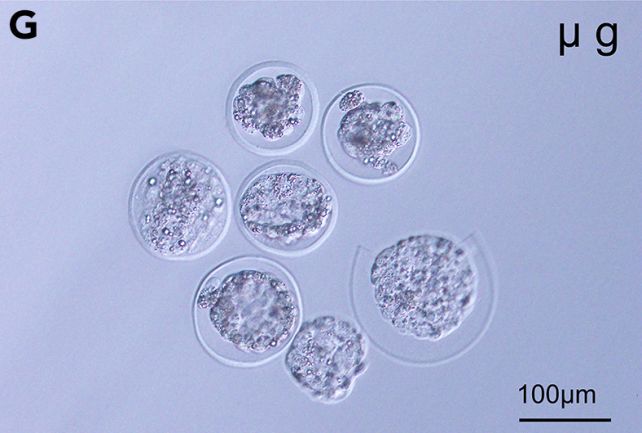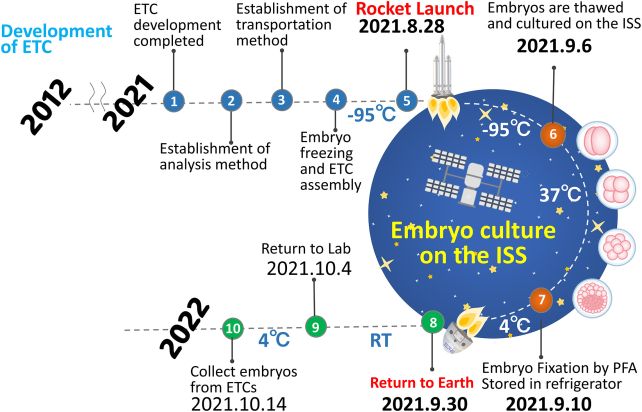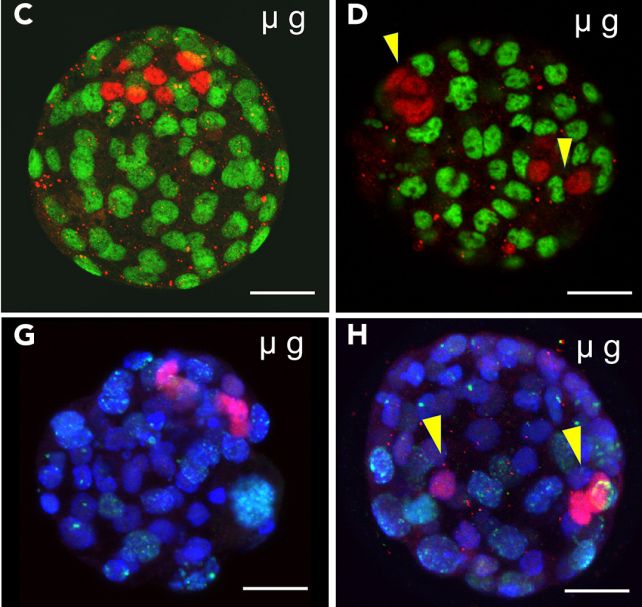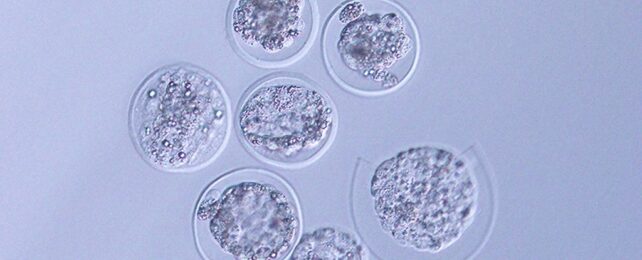As humanity eyes the strange frontiers beyond Earth's borders, making its first tottering steps towards the stars, new questions about our future begin to emerge.
One thing that has yet to be tested is the propagation of the species. Will we, as we boldly go, be able to continue to reproduce, to grow new humans in the microgravity and radiation environment beyond Earth's atmosphere?
According to a new experiment, the answer is a resounding maybe.
For the first time, mammalian embryos have been cultivated and grown in space, aboard the microgravity environment of the International Space Station, orbiting Earth approximately 400 kilometers (250 miles) above the planet's surface.
In an experiment designed and led by molecular biologist Teruhiko Wakayama of the University of Yamanashi, the results show mouse embryos can, at least initially, survive in a space environment.

"There is a possibility of pregnancy during a future trip to Mars because it will take more than six months to travel there," Wakayama told New Scientist. "We are conducting research to ensure we will be able to safely have children if that time comes."
Actually, the question of whether a mammalian fetus could develop in microgravity is one scientists have been asking for a while.
In 2009, a team led by Wakayama found that simulated microgravity had a deleterious effect on embryonic development – ova could be fertilized in microgravity, but implantation of the fertilized ova was somewhat less successful.
But there are many different moving parts of a pregnancy, and so the team's latest effort was focused not on fertilization or implantation, but the early development of the embryo. The researchers fertilized mouse embryos and developed them to two-cell stage, froze them, and shipped them up to the ISS to be thawed and cultured by astronauts in a special machine designed expressly for the purpose.
Over the course of four days, the astronauts cultured the embryos, preserving them in paraformaldehyde at the end of the experiment to be shipped back to Earth and analyzed by Wakayama's team.

There were multiple sets of embryos. One was cultured on Earth in a gravity environment as a control. A second control group on the ISS was cultured in simulated Earth gravity; and, of course, there was the microgravity experiment group.
The survival rate of both groups aboard the ISS was lower than the survival rate on Earth; but those embryos that did survive developed normally, the researchers found.
So, although the survival rate was significantly lower in space, the fact that they did survive is an encouraging sign. Also, there were factors other than gravity that could have contributed to the low survival rate in space.
"The embryos cultured under microgravity conditions developed into blastocysts with normal cell numbers, inner cell mass, trophectoderm, and gene expression profiles similar to those cultured under artificial-1 g control on the International Space Station and ground-1 g control," the researchers write, "which clearly demonstrated that gravity had no significant effect on the blastocyst formation and initial differentiation of mammalian embryos."
There's still a lot of work to be done to determine whether pregnancy in space is advisable. The research did not take into account the effects of radiation, which is a lot higher in space than it is on Earth.
The development was also halted at the blastocyst stage. It's not known whether development in utero would lead to different outcomes.

In addition, experiments involving pregnant rodents show that being in space during critical gestation stages can hinder, for example, vestibular development. The offspring of rodents flown in space also showed a higher rate of health complications. And a 2005 study found that gravity loading is necessary for normal fetal musculoskeletal development.
This suggests that a lot more work is needed to investigate the effects of spacefight on mammalian fetal development, the researchers say.
"Based on these reports and our results, perhaps mammalian space reproduction is possible, although it may be somewhat affected. Unfortunately, the number of blastocysts obtained from the ISS experiment was not abundant; and we have not been able to confirm the impact on offspring because we have not produced offspring from embryos developed in space," they write.
"The study of mammalian reproduction in space is essential to start the space age, making it necessary to study and clarify the effect of space environment before the ISS is no longer operational."
The research has been published in iScience.
